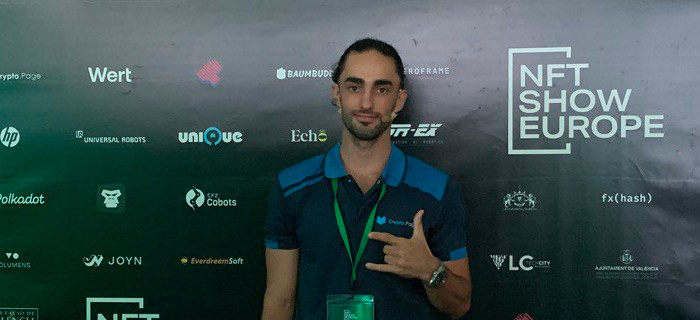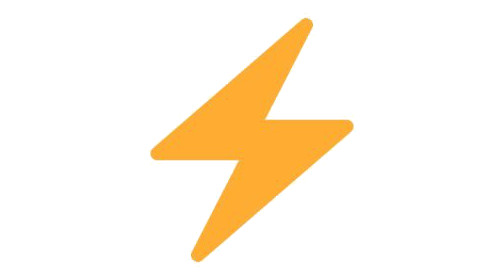Could you tell us more about yourself, your career and how you ended up in the crypto world?
All founders of Colección NFT come from the digital marketing sector, have an entrepreneurial profile, and decided to create something on our own. Like most of the people who work in blockchain today, I and the other founders, Joan and Cosme, got first interested in crypto through the cryptocurrencies and more in-depth research into the functioning of blockchain. For example, at the beginning, we had no idea about the existence of NFTs and Bitcoin. However, when we started to investigate the sector, we not only found them, we fell in love with this new technology.
Therefore, we started studying the functioning of NFTs and what people could do with this technology. We rapidly decided to dedicate ourselves to this sector and help people understand this new technology because it has an extraordinary potential. We also decided to create our YouTube channel for those people who want to learn more about this sector, about cryptocurrencies and NFTs. Some months ago, we decided to create Colección NFT.
You work at Colección NFT, could you tell us more about the organisation?
Colección NFT is the first Spanish company specialised in creating communities and managing the launch of NFT collections. We work with artists or private investors in four ways. The technical part, the strategic part, the marketing part, and community-management.
For example, we specialise in the creation of whitepapers, tokenomics and project-analysis. In addition, in the marketing part, we work on the communication and the marketing plan. We try to create a coherent discourse through well-developed social media plans in order to win followers to the projects we work on. We have been in this sector for 10 months now and the whole team of 6 people is very happy.
What is in your opinion the best way to assure the 1-person-1-Airdrop mechanism, if you make use of it?
Today, we are still not applying the 1-person-1-airdrop mechanism. However, there are several ways to do it, for example by making use of a form, a special score for users or by connecting users’ personal wallets and data to prove identity. These ways usually require users to share their data. At Colección NFT, we prefer not to do this because we think this is in contrast with the concept of blockchain. We prefer to launch new NFTs on our platform and to allow everyone to purchase them.
VAT has been applied to NFTs in Spain, what do you think about this development?
This decision from the Spanish government does not make any sense in my opinion. Our platform, as many other platforms, is a marketplace of projects. We do not know who is buying our NFTs, nor the place where the buyer comes from. In addition, in Spain there is no fair regulation for the crypto sector. The government’s interest is only to get more revenues from this sector, almost without knowing it.
We are in favour of regulations that increase people’s confidence in the crypto sector and can help us grow. However, this regulation has to be done in a proper way, which is different from what is happening now. Consider this: we work with international projects and customers, they have no obligation to disclose their identity, it is very difficult for us to know if they are from Spain or not. This is why I think that this decision from the Spanish government is not the right one at the right time.
What is in your opinion the most relevant challenge that crypto companies need to face today and how would it be possible to help them?
We think that all kinds of scams and frauds are the major challenge for the crypto world today. We think that that regulation is indeed necessary in order to protect the customers. Furthermore, we all have to work in order to prevent any types of scams or fraud in the sector, it is a matter of reputation for us all. We also think that all scammers have to be punished by the institutions in order to drag them out of the sector
In our company, we do a lot of educational work in order for people to know the potential of the technology as a whole and not only the speculative part in NFTs. We want people to know how things actually work.
The crypto market is being more and more regulated. If you could give regulators one piece of advice, what would it be?
Well, first they have to see the sector from several perspectives, not only the economic one and the speculative. If we want companies like us to keep growing, we have to do a very important educational work. We have to teach the population and companies the opportunities and benefits of crypto technology. We also have to teach this in a simple way that does not scare people, in addition to regulation.
Of course, we need governments and institutions to understand the ecosystem, while crypto companies should help them on the legal side. If we want to continue growing, we need regulation. And what better way than to cooperate with institutions in order to influence the rules of the game to come? I will prefer governments, banks and institutions to be on our side rather than against us.
What is in your opinion the future of crypto and why should people be interested in this world?
In the future, we would like to see more and more young people studying how the blockchain ecosystem works, because in four or five years there will be a great expansion of opportunities in the sector. Already today, many companies in the crypto space are looking for young developers, PR or legal officers, and marketing specialists, and this will grow even more in the future.
For young people, I think it is essential to identify these opportunities through the knowledge already available on social media channels. In the future, I am also sure that universities and schools will start teaching more about the crypto environment.
We would like to thank Javier again for sharing his insights. If you have any questions, suggestions or if you want to be our next interviewee, do not hesitate to contact us via info@zkportal.io


